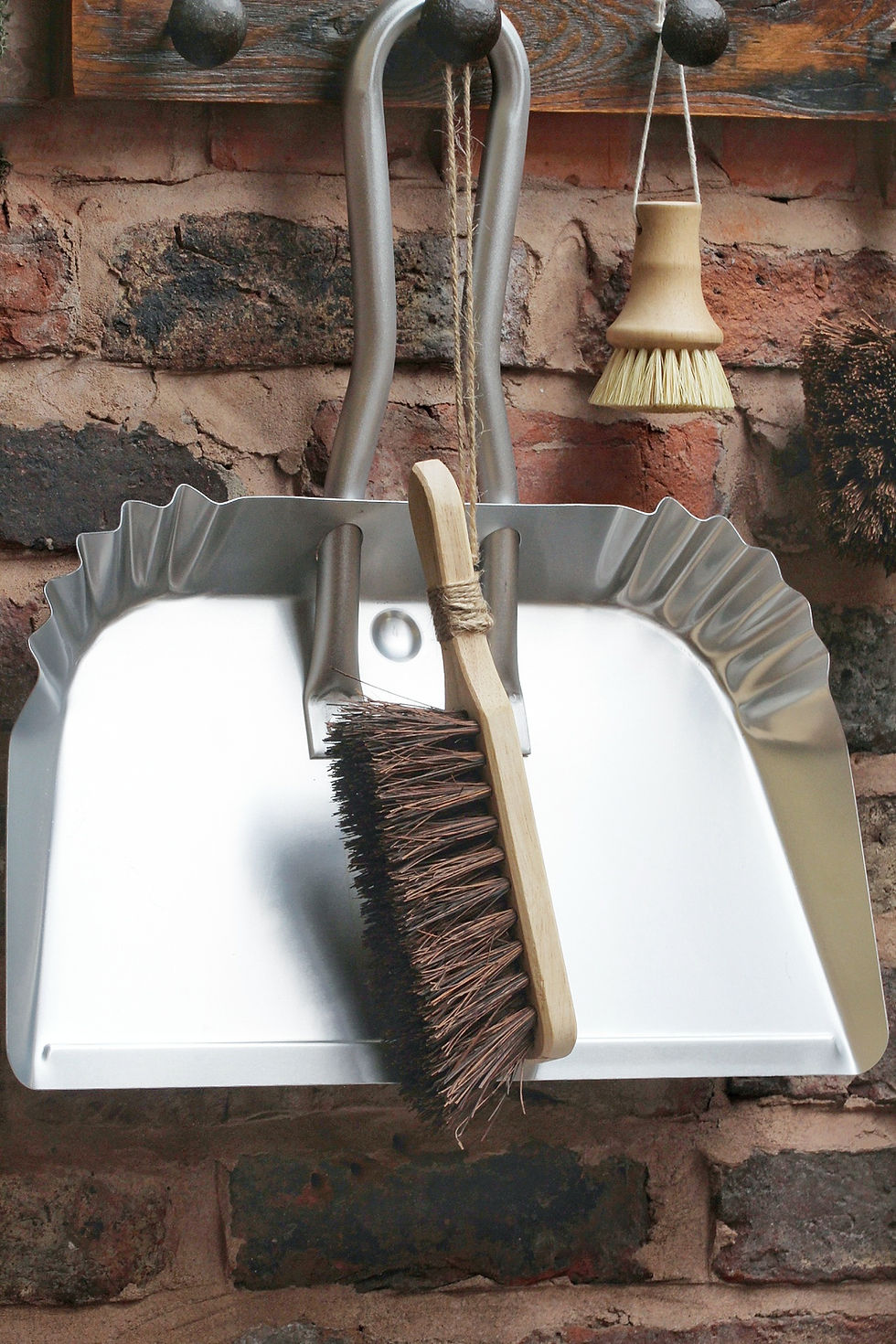CLEANING UP YOUR ACT !
- VH_INTERIORS

- Jul 15, 2020
- 3 min read
We are proud to introduce a new category of products for our store (The Hive by vh_interiors 32a Grosvenor Road, Altrincham, WA14 1LA) in the form of traditional heritage cleaning tools.
When we were selecting this new range for the shop, we were extremely mindful that we wanted them to be eco-friendly, high quality, preferably British made and affordable.... we weren't asking for much ;) But after a lengthy search and product testing some cleaning supplies to test their quality, we finally found a company who were making exactly what we were looking for.

The company we chose was established over 160 years ago, so they know a thing or two about making brushes. In fact, they grew their business by making their own brushes and supplying chimney sweeps with brushes from a small back yard... a true rags to riches tale.
All of the products are made in Britain and to make great products even more perfect, they use FSC certified wood and are entirely plastic free!
The pot scrub that we have chosen to stock is made from FSC certified beech wood and natural tapioca fibre. This effeciant yet eco-friendly plastic alternative is made in association with the Marine Conservation society. 2.5% of the proceeds of each brush sold will be donated to the Marine Conservation society, the UK charity fighting for seas full of life.
Just one of the reasons that switching to a plastic free alternative is important, is to help reduce microplastics and nanoplastics in our oceans. When you use one of the common sponges for washing your dishes, the ones with the green or blue scourers on one side, you can literally see tiny particles breaking off when washing up. These plastic particles wash down the drain and end up at a water treatment plant, unfortunately some of the plastic is washed out to sea and remains in our oceans for years!
These micro and nano plastic particles are often eaten by marine life causing harm and even death. Tests have also confirmed liver and cell damage and disruptions to reproductive systems, prompting some species, such as oysters, to produce fewer eggs. New research shows that larval fish are eating nanofibers in the first days of life, raising new questions about the effects of plastics on fish populations.

To read more about the research, feel free to click the blue highlighted words in the text above which will lead you to The national geographic website.

You can also click the link below to read how students at Manchester university are working to help change the amount of Microplastics entering our oceans.
They may seem like mundane items, but some cleaning supplies have a rich and facinating history... yes we did just say that cleaning supplies were fascinating... stick with us. Lets take the feather duster for instance, The first feather duster was invented in 1870! A farmer brought a bundle of turkey feathers to a nearby broom factory and asked if they could be used to produce a broom?
The feathers were split with a pocket knife and attached to a short broom handle. Unfortunately the feathers were too stiff for use.
Fast forward 4 years to 1874 and a lady named Susan Hibbard made her version of a feather duster and filed a patent.

It wasn't until 1903 that the Ostrich feather duster was created in Johannesburg.
In Victorian times, if you wanted to impress and show off your status symbol, your feather duster of choice would always be an Ostrich feather duster. If only it was that easy to impress people nowadays.
We have two feather dusters in our range, a Bamboo handled handy duster and a long handled duster, both made using Ostrich feathers.
The new range comprises of:


As time goes by we will be adding new pieces to the cleaning range, but thought it best that we start by allowing you to purchase some all time classic cleaning tools that most households use.
So, inspect the corners off your rooms for cobwebs, check the garden for fallen leaves and head to The Hive to stock up your cleaning cupboard with our heritage, eco friendly and affordable cleaning supplies.








Comments